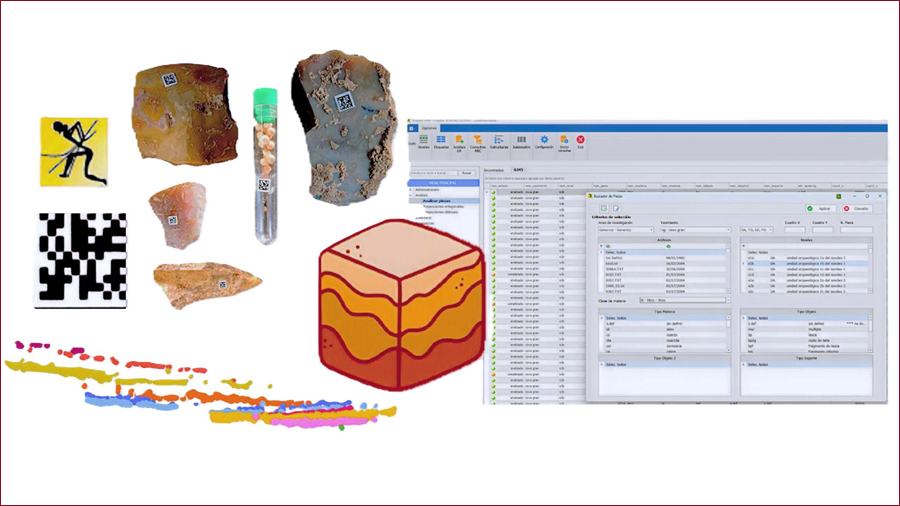CEPAP received two IdC programme projects to boost digital management of archaeological data
The Centre for the Study of Prehistoric Archaeological Heritage (CEPAP) of the UAB Department of Prehistory has obtained two grants from the Catalan Ministry for Research and Universities to promote the development and transfer of its SUGAR software (Software for Unified Governance of Archaeological Research). The projects, awarded in this year's call for proposals for the Knowledge Industry (IdC) programme, were the only ones in the humanities' field to be funded in the Product and Innovators categories.

SUGAR is a comprehensive archaeological management software designed by CEPAP to optimise all phases of fieldwork, analysis and data management of archaeological heritage. Thanks to its modular and scalable design, it allows documentation, cataloguing, inventory management, and data exploitation, which favours digitisation, standardisation and interoperability between research projects and museums, and with heritage management environments.
The SUGAR-VIT project (Software for Unified Governance of Archaeological Research - Valorisation, Innovation and Transfer), which has obtained the grant in the Innovators category, aims to promote the commercial maturation and transfer of the software. The CEPAP team will carry out a market study to guarantee the commercial viability of the software and adapt its functionalities to the real needs of users. Thus, it foresees the consolidation of a software as a service (SaaS) model that allows access to SUGAR from academic, heritage and administrative environments without the need for its own infrastructure. With a budget of €83,600 and a duration of 18 months, the project includes the hiring of an innovative profile who will lead the transfer and validation activities of the business model.
In parallel, the Q-SUGAR project (QGIS Suite for Unified Geodata in Archaeological Research), which received the grant in the Product category, will allow for the expansion of the SUGAR ecosystem with the development of a connector for QGIS, one of the most widely used open source platforms in geoinformation. It will offer advanced tools for the management, analysis and spatial visualisation of archaeological data and the automation of processes with the automatic generation of technical reports. Q-SUGAR will strengthen the interoperability and scientific value of archaeological data, as it will facilitate integration with other digital systems and enhance applied research in archaeology and heritage. The project, which has an expected duration of 18 months, has a cost of €149,300.
The Department of Prehistory already received financial support from the IdC programme for SUGAR in the 2022 call, and obtaining these two new projects consolidates the department's capacity as a driver of innovation within the UAB. These grants are intended to promote the market launch of technologies emerging from the public research system and to validate their value proposition.
Impact and sustainability
The SUGAR ecosystem fosters collaboration among research, businesses and the administration in the preservation and dissemination of Catalonia's heritage. The CEPAP team, who has been working on the project for the past two deades, highlights its main advantages: the tools facilitate the full digitisation of research processes, thus improving the management and analysis of archaeological data with the use of advanced tools. For heritage companies, there is a reduction in cost and time through automated data integration. Museums and cultural institutions benefit from efficient inventory management and cataloguing with Data Matrix codes. At the same time, public administrations can create open databases, improve information traceability, and increase transparency.
In addition, the ecosystem contributes to the preservation of heritage (SDG 8), the dissemination of knowledge and equal access (SDGs 4 and 5), and institutional cooperation (SDG 17).